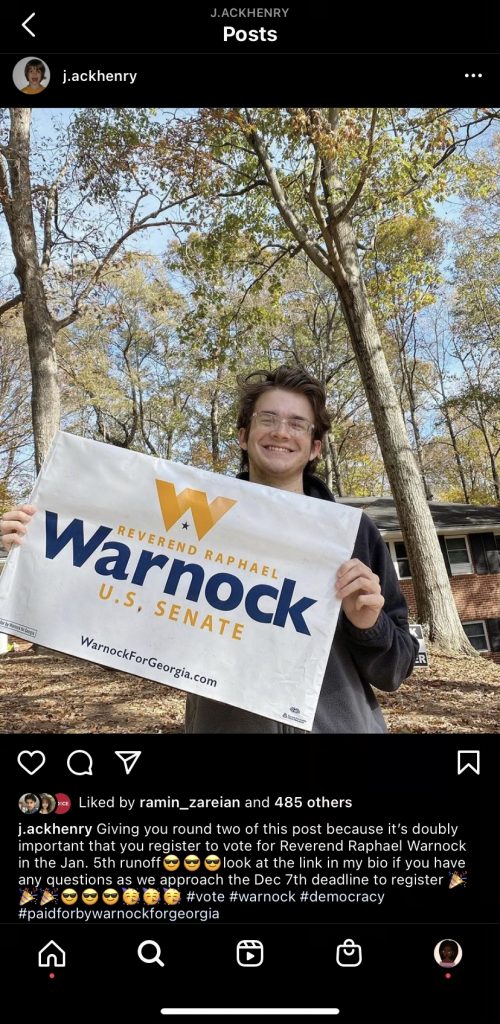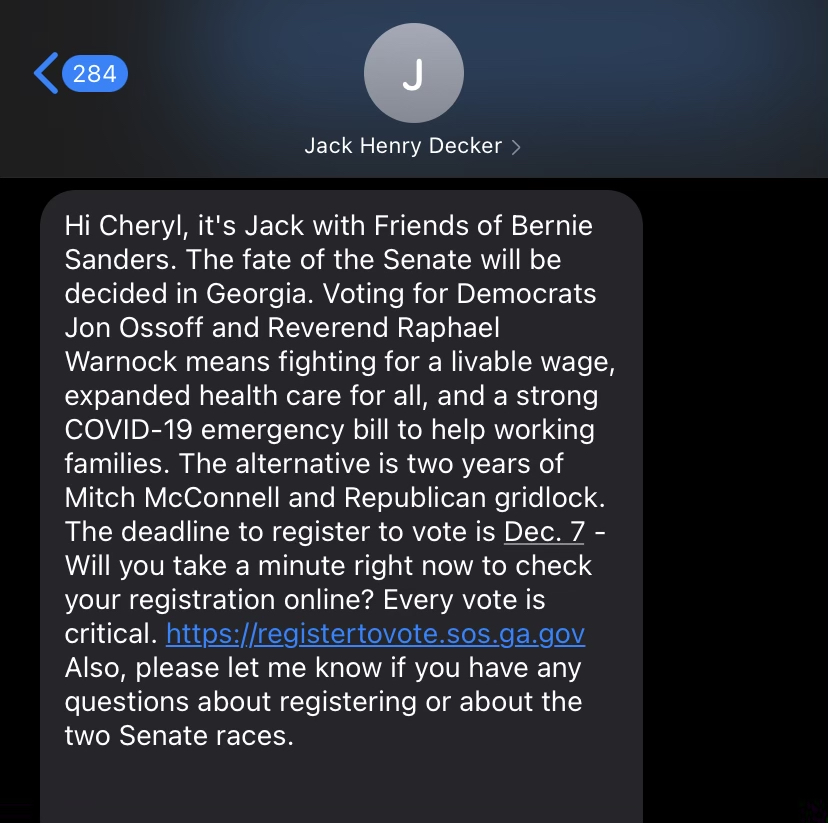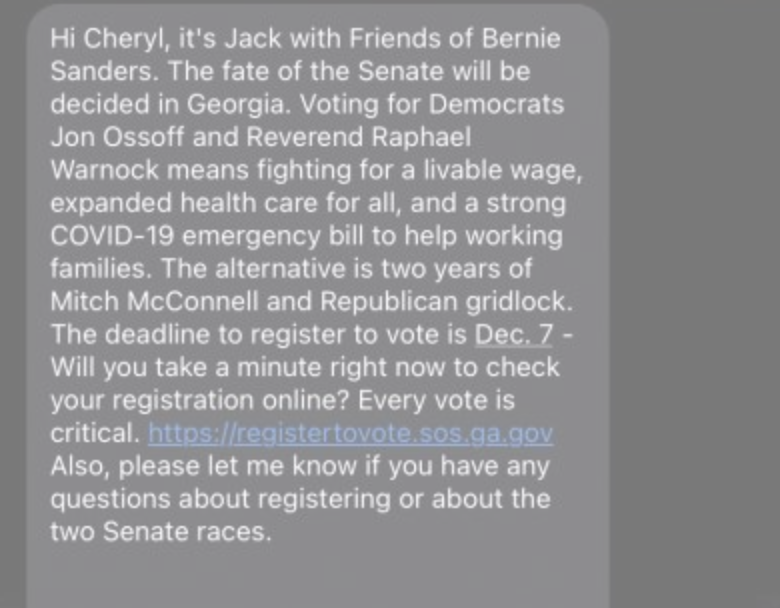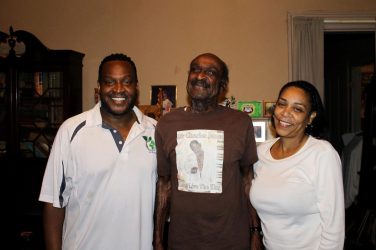968,420 more Georgia voters showed up to the polls in the 2020 elections than the previous 2016 cycle
How did Georgia increase voter participation by almost 1 million votes despite the U.S. Census reporting a population increase of only 300,000? Bluebird PAC, a grassroots progressive action committee based out of Athens, Georgia, found a method with their aggressive approach to digital campaigning.
Why It’s Newsworthy: Another election is coming next year and organizations are looking to continue the upward trend in voter turnout. Tactics such as these help to mobilize communities.
The Strategy
“During the primary, for example, that weekend before like the actual election, (we) contacted over a million voters,” former University of Georgia student and deputy press secretary of Bluebird PAC, Jaylen Black said.
Bluebird PAC was one of the many Georgia organizations that used texting, phone banking and social media outlets to increase voter participation.
They used student volunteers and other community members to be the hands and feet of the campaign.
“I learned about (Bluebird) from a SPIA (School of Public and International Affairs) listserv. They had me look at other PACs throughout the state of Georgia and how they were mobilizing and how they were crowdsourcing and getting donor funding,” University of Georgia junior Michael Banks said.
The Tools
Using an app called Hustle, campaigners were able to anonymously text up to 50 people at a time with message templates to remind Georgians about registration, early voting and polling locations.
“There was like a whole system that we did that through where it doesn’t trace back to your number that way you’re not getting trolled or called,” Banks said.
An academic study conducted in 2009 showed the effectiveness of campaign texts through the “The Noticeable Reminder” theory. It predicts that a potential voter receiving an impersonal, yet noticeable, mobilization text message will have an increased likelihood of voting compared to one who does not receive the same text.
Every Vote Counts
The increased likelihood of voter participation via texting is only 1%, but UGA student and Sens. Rev. Raphael Warnock and Jon Ossoff virtual campaigner Jack Henry Decker argued every vote matters.
“It’s definitely not the most efficient way to campaign, but it’s the most personable so if a ton of people do, you’re still going to get a good success rate. One extra vote made a difference in elections this close,” Decker said.

When texting potential voters, Decker said he was not compensated for the work he did.
“We didn’t really get training, and we definitely did not get paid to volunteer. We were not refunded for our cell phone bill, but that’s not really an issue for me because I don’t really get charged per text. It was all from home,” Decker said.

Decker made anywhere from one to three instagram posts a week in addition to texting 30-40 people twice a week, and was not worried about getting negative feedback from Georgia residents.
“I didn’t really worry about offending people or getting hateful messages because when it’s texting instead of calling it’s a lot less personal … One thing it helps with is if somebody doesn’t like it or says something rude, I can just delete it and move on,” Decker said.
When rating the effectiveness of digital campaigning, there are limitations to the approach.
A Yale academic study on the different campaigning methods showed face-to-face contact to be the most effective way to encourage people to vote.
“I’m really big on relational organizing and trying to build community. (With) calls most of the time, you really don’t know who that person is,” Black said.
Black said people might question the authenticity of the canvasser if the campaigning is done virtually.
“(People think) ‘is it just like someone who works somewhere trying to reach a goal to get paid? Or is this person also passionate about the issues I’m passionate about?’ I think it is a challenge when you’re just a voice to somebody or a name. They don’t really know your story,” Black said.
Exception or the Rule?
Due to the global pandemic, Black believes virtual campaigning is the best way to keep voters engaged.
“(Virtual campaigning) was really helpful because, for example, if a voter normally couldn’t make an event, or make a rally … because they are at work or just couldn’t commute in time, you literally just have to click on a button, then you can be in there with the candidate,” Black said.
In addition to low retention percentages and ingenuity, Black said the participation in this election is different than others simply due to its historic implications.
“The stakes of this election … is just something we emphasize over and over. In the pandemic alone … we’ve never seen any of this in our lifetime,” Black said.
With all of the variables that have gone into this election and without the solid number proof, it is not concrete that digital campaigning was the key to the increase of voters in the state of Georgia.
Cheryl Kwapong is a fourth-year student majoring in journalism in the Grady College of Journalism and Mass Communication at the University of Georgia.








Show Comments (0)